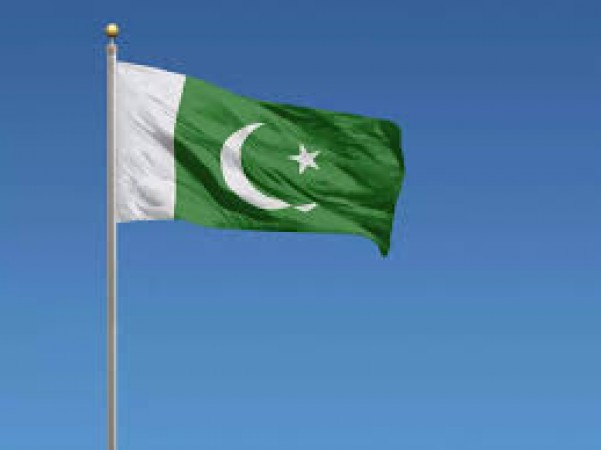
Pakistan, a country nestled in South Asia, owes its name to a remarkable combination of historical, cultural, and linguistic influences. The moniker "Pakistan" emerges from a significant period in the region's history, marked by fervent nationalism, religious identity, and the quest for self-determination.
The Etymology
The name "Pakistan" is a blend of two Persian and Urdu words: "Pāk," meaning "pure," and "istān," signifying "land." Thus, the term Pakistan collectively represents the "Land of the Pure." This fusion of linguistic elements not only encapsulates the purity of purpose but also evokes a sense of sanctity and wholesomeness, reflective of the ideals espoused by its founders.
Vision of the Founders
The concept of Pakistan materialized during the tumultuous years of the 20th century, amid the waning years of British colonial rule in the Indian subcontinent. Visionaries like Allama Iqbal and Muhammad Ali Jinnah played pivotal roles in articulating the need for a separate homeland for Muslims. Their visionary leadership and unwavering commitment to the cause of self-determination galvanized millions and paved the way for the birth of a new nation.
Allama Iqbal's Poetic Influence
Allama Iqbal, a revered poet-philosopher, occupies a central place in Pakistan's intellectual and cultural landscape. His stirring poetry, infused with profound philosophical insights and a deep sense of national identity, resonated deeply with the masses. In his poetic works, particularly the idea of a separate Muslim state, Iqbal articulated the aspirations and dreams of millions who yearned for emancipation from colonial subjugation.
"Shaheen" and the Dream of Self-Determination
In his iconic poem "Shaheen," Iqbal invoked the metaphor of the eagle ("Shaheen") to symbolize the Muslim community's aspirations for self-realization and autonomy. This powerful imagery of the majestic bird soaring high above earthly confines encapsulated the spirit of resilience, determination, and courage that defined the struggle for independence. Through his poetry, Iqbal ignited the flame of nationalism and inspired generations to strive for a better future.
Muhammad Ali Jinnah's Leadership
Muhammad Ali Jinnah, widely revered as the "Father of the Nation," emerged as the towering figure in the struggle for Pakistan's creation. His political acumen, unwavering determination, and steadfast commitment to the principles of democracy and equality endeared him to millions across the subcontinent. Jinnah's leadership during the tumultuous years preceding partition was instrumental in steering the course of history towards the establishment of a separate homeland for Muslims.
Lahore Resolution and the Birth of Pakistan
The historic Lahore Resolution of 1940 stands as a seminal milestone in Pakistan's journey towards independence. Spearheaded by Jinnah and other prominent leaders of the All-India Muslim League, the resolution unequivocally affirmed the demand for a separate sovereign state for Muslims in the Indian subcontinent. This watershed moment galvanized public opinion and laid down the foundation for the eventual partition of British India and the creation of Pakistan.
The Role of Choudhary Rahmat Ali
Choudhary Rahmat Ali, a visionary Cambridge-educated activist, occupies a unique place in Pakistan's history as the originator of the term "Pakistan." In his seminal pamphlet "Now or Never; Are We to Live or Perish Forever?" published in 1933, Ali proposed the idea of Pakistan as an acronym representing the Muslim-majority regions: Punjab, Afghania (North-West Frontier Province), Kashmir, Sindh, and Baluchistan. This visionary concept laid the groundwork for the articulation of a distinct Muslim identity and the eventual creation of Pakistan.
The Ideological Significance
The name "Pakistan" embodies not only the geographical territory but also the ideals, aspirations, and sacrifices of its people. It symbolizes the spirit of unity, faith, and resilience that define the collective identity of the nation. Moreover, it serves as a constant reminder of the struggles and sacrifices endured by countless individuals in the pursuit of freedom, justice, and equality. In essence, Pakistan represents a beacon of hope and a testament to the indomitable human spirit. In conclusion, the name "Pakistan" stands as a testament to the resilience, vision, and sacrifices of its founding fathers and the countless individuals who fought tirelessly for its creation. It symbolizes the triumph of hope over adversity and the enduring quest for dignity and self-determination. As Pakistan continues to navigate the challenges of the modern world, its name serves as a reminder of the ideals and principles upon which the nation was founded. It is a name imbued with meaning, significance, and a profound sense of identity, reflecting the rich tapestry of its history and the aspirations of its people.
Cotton candy can cause cancer! Know why two states banned cotton candy
Eating too much garlic can spoil your health, know how much should you eat in a day?